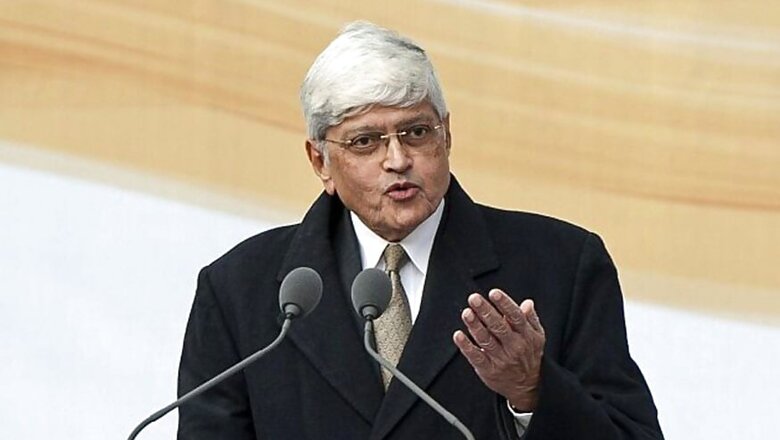
views
New Delhi: We are now living in a country where the State is extremely sensitive to criticism and where intolerance seems to be a miasma that rolls down from the houses of power in Delhi to the gullies of all its cities, former West Bengal Governor Gopalkrishna Gandhi said on Sunday.
Speaking at an event, Gandhi emphasised that "an intolerant State can be opposed with great difficulty, but an intolerant society has to be opposed with even greater difficulty".
"It is easy to work against the State than it is to work against an intolerant society. I say this in the knowledge of the fact that we are now living in a country where the State is extremely sensitive to criticism and where intolerance seems to a miasma that rolls down from the houses of power in Delhi to the gullies of all its cities.
"But yet I would say this that an intolerant State can be opposed with great difficulty, but an intolerant society has to be opposed with even greater difficulty," Gandhi said while speaking at Tenth V M Tarkunde Memorial Lecture.
Citing one of Tagore's song 'Chitto Jetha Bhayo Shoonya (Where the mind is without fear)', he said that "today it's 'Chitto Jetha Bhayo Poorna' and not 'Bhayo Shoonya' (today the mind is fearful, not without fear).
"Partition redrew India's map. Polarisation redrawing India's mind. Extremists of the both sides of the Hindu-Muslim divide are at it, and vigorously. India versus India is no where more visible today than the issue related to the demands for the uniform civil code.
"The surge in the Hindu right of compassion for Muslim women will sound less unconvincing if it is accompanied by simultaneous concern for gender rights in India across religion as a whole.
"The Indian State and the ruling party at the Centre should be uniform about reform. Equal representation should be call along with uniform laws," he said.
He said that situations arose in Tamil Nadu and Karnataka after the Cauvery water dispute, dalits facing the brunt of Ranveer Sena in Bihar and the problem faced by the people in Nagaland, Kashmir and in other parts of the country are the examples of India versus India.
"We are deeply divided people, psychological, in our political make-up or in other aspects... Our country is not just one mass of people who can be led by leader. India is far too complicated and complex," he said.

















Comments
0 comment